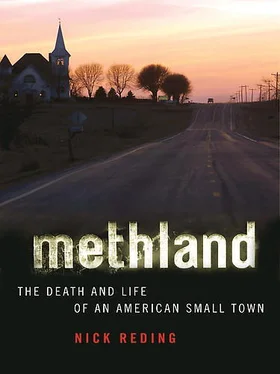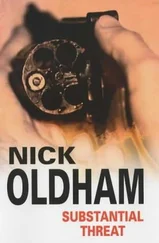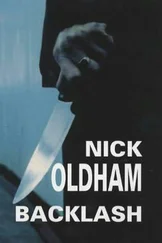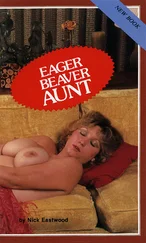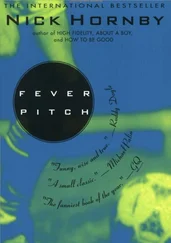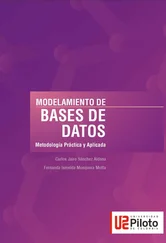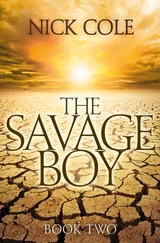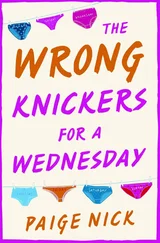Bonnie paused to light another one of Joseph’s cigarettes. This time she didn’t give it back to him. The whole time she’d spoken, Joseph had silently rubbed his forearm with his blunt fingers, the way you might rub a favorite blanket or a piece of cloth. Bonnie said, “So that’s what we get for trying to help.”
Staying busy amid these circumstances, said Bonnie, was a blessing. What busied them more than anything else was overseeing a kind of in-house rehab for Major while they waited to see what, if any, problems Buck might develop. This was not Los Angeles, or Tampa, or even Poughkeepsie. There were no residential chemical abuse facilities around there. None that Bonnie and Joseph could afford anyway, despite making twice the median income for the area.
By law, Major had to attend Narcotics Anonymous meetings each week; meet with his parole officer twice a month; and hold down a job, which meant working construction. Had Buck still been in his custody, a DHS worker would have visited every week to assess the situation and to offer help, for an hour at a time, with the dizzying array of adjustments, however prosaic or monumental, that Major faced in his attempt to live a sober life. “That’s as much as can be done for meth addicts and their children,” said Bonnie in regard to comparatively well-off Independence, Iowa.
When Joseph finally broke his silence to offer his opinion on what should be done with meth addicts, it reflected this lack of available options. Brutally, dispassionately, quietly, he said that all addicts ought to be sterilized. While in jail, they ought to be put to work on behalf of the community they have sullied, milking cows and building roads. Then, echoing his wife, he said, “That’s as good as can be done in In dependence, Iowa.”
Bonnie let him cool down. Then she reminded Joseph that while Major was last in jail, his third time, Joseph went to visit him every night. Furthermore, Joseph leveraged his position as a county magistrate in order to get Major out early. Had Major been sterilized during one of his incarcerations, Bonnie went on, they would never have had the profound pleasure of seeing Buck learn to walk. When she was done talking, she put her hand on his.
Joseph shook his head. Then he nodded in agreement. “Whatever happens,” he said, “we’ve got the boy.”
For a moment, it was unclear which generation of his progeny he meant: his son or his grandson. Then he said, “No matter how badly he screws up from here, Thomas can’t change that.”
CHAPTER 5
THE DO DROP INN
Before my second two-week stay in Oelwein during the summer of 2005, I’d spent ten days driving from town to town in southern Illinois, western Kentucky, and northern Missouri. In Benton, Illinois, a poor black-earth farm town in the sweltering hollows of Franklin County, I’d ridden around for a few days with J. R. Moore, who was not only the Benton police department’s sole narcotics officer, he was also Benton’s interim mayor and the owner of one of the town’s three restaurants. All day, J. R. drove a black Mustang GT with tinted windows and an arsenal of shotguns in the bucket backseats, smoking Marlboro Lights and rolling down his window at stop signs to say hey to people he’d known all his life. In Chillicothe, Missouri, in the cattle-and prairie-rich heart of the state’s northern river breaks, I’d spent the night in a motel and listened while, in the room above me, a man beat the woman he’d married that very evening, at that very motel. Like the hill country around Benton, the area around Chillicothe, 350 miles away, had a monumental meth problem, and the bride yelled loudly that her new husband would not have been doing this to her had he not been high on crank. When I called the police, a female officer talked to the groom outside the window of my ground-floor room. After he convinced the officer that nothing was wrong, she wound up her investigation by wondering what kind of out-of-towner had mistaken a good time for domestic abuse.
By then, it was no longer a question in my mind whether meth was a bigger problem in small-town America than in larger cities. San Francisco undoubtedly has many, many more meth addicts than the Central Valley town of Merced. There are thousands of meth addicts in Des Moines, while in Oelwein there are barely more than six thousand people total. Los Angeles is meth’s ancestral home in the United States. Like New York, San Francisco, and Miami, Los Angeles has a large population of gay meth addicts. In the past five years, HIV and hepatitis C rates have increased among the gay population, and meth is widely blamed. The meth problem in those cities is significant, if not monumental. The difference is that Los Angeles can absorb the associated costs of those problems more easily than Oelwein or Merced or Benton. And the recourse of small towns in confronting meth seemed only to be growing bleaker.
The question was how to portray the meth problem in the rural United States without stereotyping—and ultimately trivializing—the places to which meth had called such attention by the summer of 2005. Beavis and Butt-Head, Smurfers, mom and pop—meth users had entered the lexicon as caricatures, which ultimately stemmed less from the drug and more from the environs with which that drug was associated. Oddly, nowhere were the prejudices against—and parodies of—small-town meth addicts more explicit than in Oelwein itself, the town that, according to Clay Hallberg, Jay Leno once referred to in a Tonight Show monologue as “possibly the worst place in the world.” Even Nathan Lein struggled with the temptation to see the people he prosecuted as “shitbags.” In some ways it seemed that the meth epidemic only added to a sense of isolation in Oelwein, as though the world was happening everywhere but there.
Viewing meth as a crime story vastly oversimplifies the problem. Similarly, Clay Hallberg had made it clear to me in our very first conversation that there was a lot more to this story than a drug and its effects. That drug stood for something. Now I was beginning to see what Clay had meant. Meth represented, in the words of Craig Reinarman, a sociologist at UC Santa Cruz and an expert on drug epidemics, “sociological fault lines.” Back-to-back nights—one at the Do Drop Inn and the next at a party at Clay Hallberg’s—painted these fault lines in stark distinction. What became particularly clear was that, despite one’s best intentions, the divisions fostered by a drug epidemic seem to run along the lines of class—or at least along the perceptions of class. Major is not what’s considered to be a “typical” meth addict, since he’s from a successful family. And yet, because he was drug-addicted, he’s considered to be less by his own father and by Nathan Lein, who grew up far poorer than Major.
Douglas Constance is a rural sociologist at Sam Houston State University in Huntsville, Texas. Constance puts Reinarman’s point in a different context when he says that the United States is “psychological, not a sociological nation.” What he means is that we will always hold the individual responsible over the group, blaming the drug addict instead of investigating the environment in which he grew up, and (conversely) celebrating the quarterback above the team following a win. In a small town, the distance between the winner and the loser is negligible, though the instinct to insulate is just as strong as it is in New York City. What connects people in New York and in Benton, Illinois, in fact, is that both resist believing that they have anything in common. Major’s father seemed to associate himself automatically with his grandchild over his son. In a similar manner, what Nathan Lein must every day remind himself is that he does, in fact, share many things with Roland Jarvis.
Читать дальше
